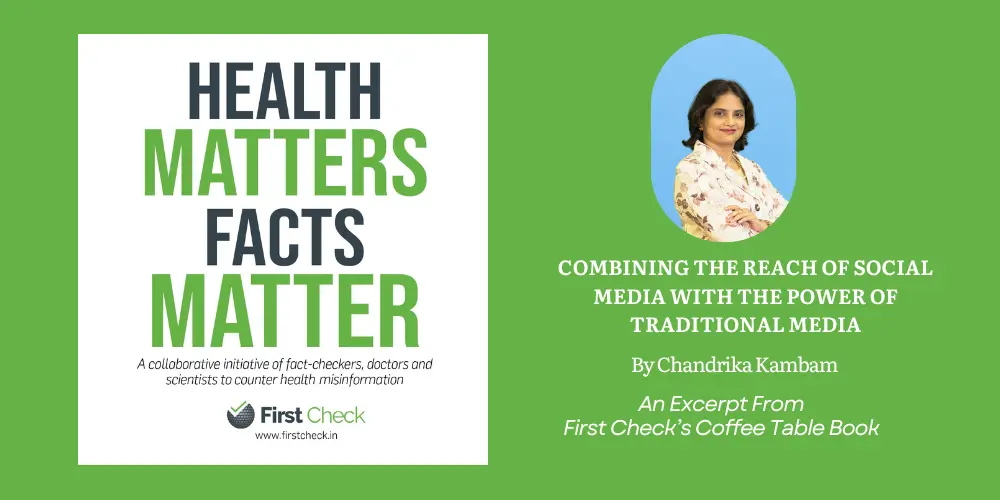What The Fact! – How information deficits fuel misinformation
- admin / 4 years

- 0
- 3 min read

People tend to engage more with misinformation than factual information. The reason: misinformation promises quick-fixes, a quicker road to recovery and a false promise of complete cure.
By Varadarajan Ananthakrishnan
Recently the father of a very close friend was diagnosed with cancer. Needless to say, he was devastated and so was his family. The first step was to understand the condition. What is the stage he is at? Is it curable? Can things be pulled back? Friends and relatives pitched in with their own advice: go for chemotherapy, go for radiation. Some said fasting for long periods starves the cancer cells eventually causing them to die. Some even suggested cow urine citing bizarre reasons for the same.
The first thing that came to my mind is – once such a diagnosis hits us, we are scrambling for answers. And most times, the answers are not available – at least not all of them. That is what information deficit is all about. When there is an information deficit, or very little information is available, you tend to believe the first piece of information you come across. Because you tend to agree with it – not because the information is correct, but you are very likely to subscribe to it because it seems plausible to you. This information gap is where the misinformation players come in, and feed you unverified, inauthentic, hearsay information that has zero credibility. Unsurprisingly, social media – with all the self-styled knowledgeable people, fuels, and amplifies this misinformation.
While reading up for my friend, I came across an article that talked about challenges of cancer misinformation. It quoted a study that said one of three articles posted on social media contained false, inaccurate and misleading information. One such article claimed that cannabis oil can cure aggressive lung cancer or breast cancer. There is no truth in this whatsoever. What is even more shocking is that nearly 80% of the information shared were not only wrong but downright harmful for patients.
Yet the study found that people tend to engage more with misinformation than factual information. The reason: misinformation promises quick-fixes, a quicker road to recovery and a false promise of complete cure.
In any medical condition – cancer or otherwise, make sure you seek information from authoritative sources, doctors and hospitals – not social media. Even if the information on social media sounds credible, please do all that you can to verify it from your doctors, and do not take any step that can jeopardise your health condition any further.
Till we meet again – remember we are still very much in the pandemic and so, please stay safe, follow the protocols and always, check your facts.
Noticed health-related misinformation somewhere? Share it with us! You can mail us at hello@uwsi.firstcheck.in or WhatsApp us on +91 9311 223145.










